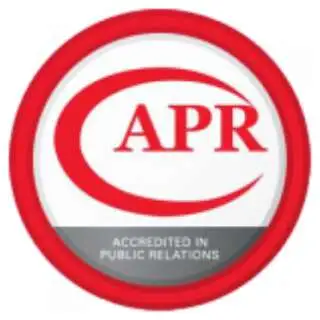Program learning outcomes & program structure
Program learning outcomes & program structure
The MCM curriculum provides students with leading-edge education in communications theory and practice. The MCM curriculum is based on exhaustive research, including a thorough literature review of professional communication and communications management scholarship, interviews with top communications managers worldwide, a national survey and focus groups of professional communication practitioners.
MCM Program learning outcomes
Information Box Group
1. Foundational knowledge
Students should have a critical, structural and functional understanding of how current and emerging practices of communications management interact and interrelate within a historical context.
2. Theoretical knowledge
Students should be able to know and apply the various theories of communication management to diverse organizational cases and scenarios.
3. Technology and digital media
Students should have a critical and administrative understanding of how technology and innovations in digital media transform communications management, in the past, present and future.
4. Data, research and evaluation
Students should understand how to conceptualize, apply and critically evaluate the appropriate research methods, data science analytics and metrics used in communications management.
5. Ethics and policy
Students should understand and critically apply ethical reasoning to a variety of communication management scenarios within the context of Canadian and international policy and law.
Information Box Group
6. Strategic management
Students should have knowledge of strategic communications management, strategic marketing management and public affairs in the corporate, not-for-profit and government sectors.
7. Financial & accounting literacy
Students will have an understanding of the fundamentals of managerial finance, financial reporting, and accounting within an organizational communication management context.
8. Organizational integration
Students should understand how the unique fields of communication management interact with other operational and functional management disciplines.
9. Ethos of leadership and enterprise
Students will understand key leadership roles and procedures for modern enterprises with communication functions, including, strategic management, entrepreneurship and consulting.
10. Global context
Students will understand the role and impact of globalization and internationalization on the practices of communications management.
These program learning outcomes are achieved during the MCM curriculum which systematically imparts, in a cumulative fashion, the tactical, strategic, theoretical, methodological, scientific and cultural ideas necessary for success as a senior communications manager.
MCM program structure
Public relations core
(5 required courses; 15 units)
- COM MGMT 711 / Organizational Public Relations
- COM MGMT 712 / Public Relations Research
- COM MGMT 715 / Applied Ethics in Communications Management
- COM MGMT 741 / Crisis Communications and Issues Management
- COM MGMT 744 / Data Science and Analytics for Communications Management
Management core
(4 required courses; 12 units)
- COM MGMT 721 / Strategic Management
- COM MGMT 722 / Financial Reporting and Management Accounting
- COM MGMT 723 / Financial Management
- COM MGMT 724 / Marketing Management
Electives*
(2 courses; 6 units)
- COM MGMT 714 / Strategic Public Relations Management
- COM MGMT 725 / Understanding Audiences for Strategic Communications
- COM MGMT 727 / Organizational Social Responsibility and Sustainability
- COM MGMT 728 / Investor Relations and Financial Communications
- COM MGMT 730 / Leadership, Persuasion and the Successful Executive
*This is a small sample of potential electives
Capstone project
(3-unit project)
- COM MGMT 740 / Professional Project
Students will do a professional capstone project (equivalent to one course) and two electives.

MCM + APR Professional Accreditation
Starting in 2018, recent MCM alumni have a new opportunity to submit their MCM capstone or other research assignments as part of their application file for the CPRS Accredited in Public Relations (APR) designation.
The APR is an international professional designation, recognized in 14 countries around the world. In Canada, it is administered by the Canadian Public Relations Society.
Despite living across North America, MCM alumni have generally prepared their accreditation through the CPRS Hamilton Accreditation Study Group, which is led by an MCM alum or faculty member. The first CPRS Hamilton MCM+APR Accreditation Chair was Heather Pullen, APR, FCPRS. In 2017, Heather designed the CPRS Hamilton APR curriculum and shepherded many potential APRs toward successful completion of the credential.
Starting in 2019-20, Dr. Alex Sévigny, APR is serving as MCM + APR Accreditation Chair.
MCM Alumni who have achieved their APR through this program
- Scott Anderson, MCM, APR
- Jane Antoniak, MCM, APR
- Caroline Bourque-Wiley, MCM, APR
- Cynthia Breen, MCM, APR
- Cheryl Crocker, MCM, APR
- Terence (Terry) Flynn Ph.D., APR, FCPRS, LM
- Sara Goldvine, MCM, APR
- Colleen Killingsworth, MCM, APR, FCPRS
- Peggy Kulmala, CD, MBA, MCM, APR
- Lindsay MacKenzie, MCM, APR
- Anne Marie Males, MCM, APR
- Courtney McGillion, MCM, APR
- Matthew Radford, MCM, APR
- Rashpal Rai, MCM(c) APR
- Amanda Richardson, MCM, APR
- Julia Rim Shepard, MCM, APR
- Josie Cassano Rizzuti, MCM, APR, CMP®
- Claire Ryan, MCM, APR
- Professor David Scholz APR
- Gail Strachan, MCM, APR
- Christine Szustaczek MCM, APR
- Nicole Vlasman-Bullock, MCM, APR
- Victor Vrsnik MCM, APR, FCPRS
- Martin Waxman, MCM, APR
- Nicole Woodall, MCM, MCM, APR
